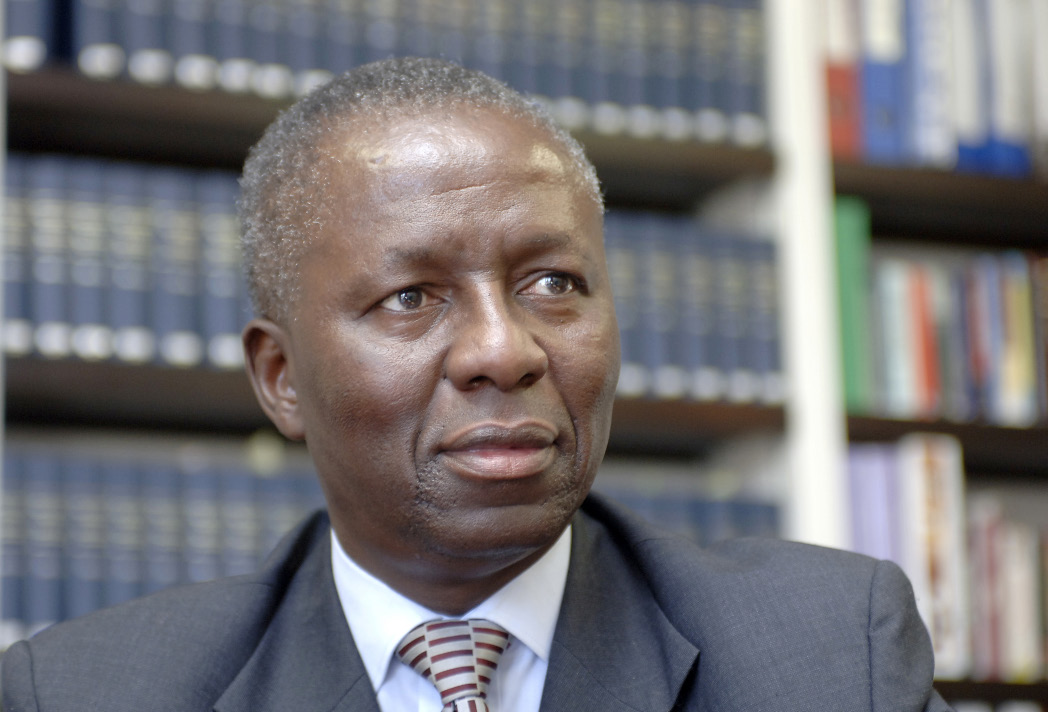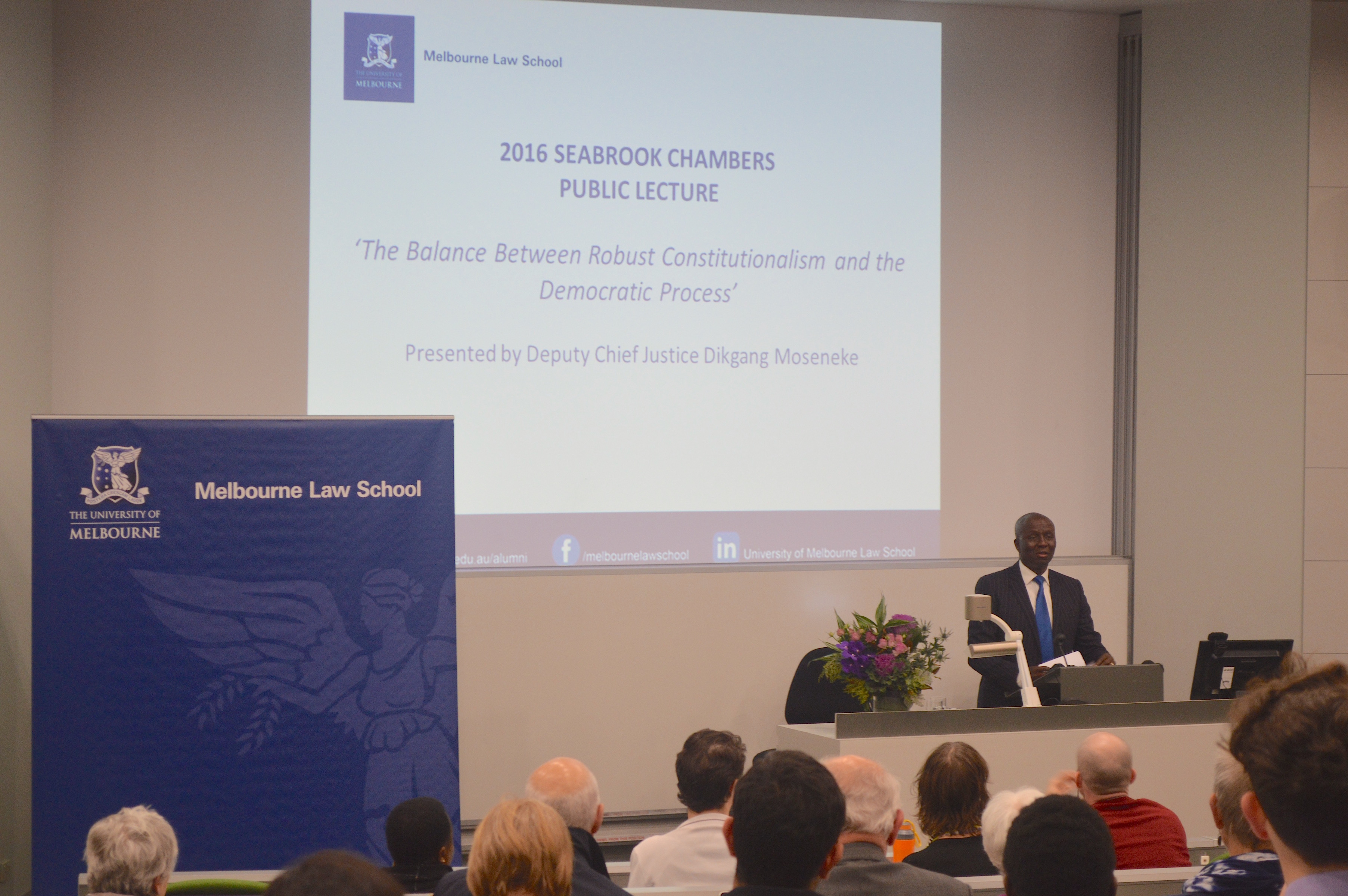Freedom fighter: Justice Moseneke’s revolutionary career
Few lawyers have been a subject of law in as many varied and conflicting ways as anti-apartheid activist Dikgang Moseneke, the recently retired Deputy Chief Justice of the Constitutional Court of South Africa.

Justice Moseneke spent ten years as a prisoner on Robben Island, where he formed a strong connection with the Island’s most famous inmate Nelson Mandela. He arrived at the island prison aged 15, after being sentenced to a ten-year imprisonment for his involvement with the illegal Pan African Congress.
At Melbourne Law School to deliver the 2016 Seabrook Chambers Public Lecture yesterday evening, Justice Moseneke discussed the balances between an entrenched and robust constitution and fair democratic process.
His Honour covered the ongoing South African debate on the extent to which the Constitutional Court should be empowered to overrule the legislation of democratically-elected representatives.
Answering his own question on the tension between judiciary and legislature, his Honour felt the Constitution found the correct balance.
Its protection of rights ensures a safeguard against the tyranny of the majority. He gave the example of capital punishment, held by the Court to be prohibited under the Constitution, but which enjoys majority support in the electorate.

During his incarceration, Justice Moseneke studied Arts (majoring in English) and, later, law – needing to bring a legal action to even claim that right. His Honour spoke of his time on Robben Island as shifting his perspective from one of a revolutionary to one trying to work from within the system to affect change.
After completing his prison sentence, Justice Moseneke rose through the ranks of the legal system, and his knack for the revolutionary rose with him. His being called to the Pretorian Bar in 1983 culminated in the abolition of the whites-only bar membership rule. He took silk ten years later.
When Nelson Mandela was released from prison in 1990, it was Moseneke he called to represent his wife Winnie against charges of kidnapping and assault. Mandela would call on Moseneke again, three years later, to help draft an interim constitution as South Africa transitioned out of Apartheid.
His Honour later advised the drafting of the 1996 Constitution.
"Apartheid, in many ways, will define Justice Moseneke’s legal and judicial career, as it does many other oppressed lawyers of his time. However, few lawyers of his generation have wrestled with the realities of the regime as thoroughly."
“The Apartheid regime was assisted by a lack of accountability,” Justice Moseneke said. Something that could be ensured by a robust constitution.
In his own words, his Honour was first a slave, then a foot soldier, later a prisoner, then a lawyer in a broken system, and finally a drafter and interpreter of the Constitution. But always a freedom fighter.
A revolutionary from all sides of the law.
By Scott Colvin